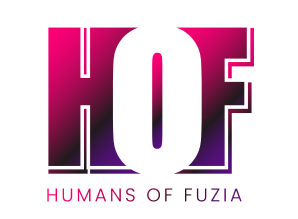Riju Ray is a physician-scientist with general medical training and a PhD in pharmacology research. After completing a fellowship, he served as junior faculty at a university conducting neuroscience research. He later transitioned into the pharmaceutical industry, working across various R&D departments and disease areas. Currently, he is a cross-functional leader in the early clinical development domain. To complement his technical expertise, he became a certified coach and, for over a year, has been helping individuals become the best version of themselves through leadership development, executive coaching, and career growth. This journey led him to establish Inner Insight Coaching, marking his venture into entrepreneurship.
If your business could have a mascot, what would it be and why?
This is a hard question. However, when I pondered on this, I would pick a wolf. It’s an animal that actively helps others and sometimes leads the pack too. It resonates with me because, as a coach, I see my primary role as helping or serving people by allowing them to recognize their own value—something they may not always see themselves. I never let them go and continually guide them from behind, which embodies the essence of coaching: allowing people to find the best answers (or inner insights) for themselves and shape their lives, both professionally and personally.
What strategies do you employ to maintain a healthy work-life balance while running your own business?
My primary focus is on my corporate role, so I leverage weekends and after-work hours to build Inner Insight Coaching. As a professional, I prefer the term “work-life integration” rather than “balance,” and I encourage the teams I lead to adopt the same mindset. I am highly conscious of ensuring that my coaching business does not interfere with my family’s needs, so advance planning is essential. Fortunately, my family is very supportive and understanding, as long as they are aware of the time commitments required for my clients and business growth. Additionally, my spouse encourages me to expand my coaching business and increase my social presence, as she strongly believes in my coaching process and ability to help others. Lastly, coaching itself helps me achieve balance—it fills my “fulfillment cup” when I see genuine progress in my clients, enabling them to create positive change in their lives and the lives of those around them.
When faced with unexpected detours on your business path, how do you pivot with grace and resilience, showing fellow women entrepreneurs the way forward?
When I encounter detours or challenges, I start by giving myself a moment to acknowledge setbacks instead of simply brushing past them. Then, I focus on reframing the situation positively and identifying my next steps. I also reflect on whether I did everything within my control, as the outcome itself is often beyond my influence. This perspective gives me a sense of liberation from unexpected results. Over time, I’ve learned not to rush into fixing problems immediately. Instead, I let them sit with me for a day (or a few days), allowing my inner insights to emerge and guide me toward the best path forward. This separation between problem and solution truly helps.
How do you measure the success of your business beyond financial metrics, such as customer satisfaction or community engagement?
I am grateful that my coaching business is a side venture, so financial metrics are not my primary driving force—though they certainly matter. What truly motivates me is client feedback, especially when I see tangible improvements in their approach, mindset, or energy by the end of a session. This gives me a deep sense of fulfillment and success in adding value to their lives. Community engagement is another key aspect—I actively share insights on LinkedIn through my version of “ideas worth sharing.” My goal is to spark new perspectives in my audience. In the coming months, I plan to expand my outreach through diverse content, hoping to create a broader impact.
Can you share a memorable moment where you witnessed significant growth or transformation in your business, illustrating the impact of your services/products?
A particularly memorable moment for me was reflecting on the recommendations I have received on LinkedIn from those who have experienced my coaching. Seeing this collective feedback consistently highlighting trust in my services, the value derived, and the positive outcomes achieved has greatly boosted my confidence as a coach. It has also helped me overcome the doubts and fears I faced when starting out as a newbie in this field.
What role do you believe mentorship plays in the success of small businesses, and how have mentors influenced your own entrepreneurial journey?
Mentorship is crucial in any form of business—small or large. I have been fortunate to have great mentors who shaped my pharmaceutical career, and similarly, I have built a strong network of established coaches who transitioned from corporate roles into coaching. This network has provided me with valuable insights into the realities of such a transition, helping me set realistic expectations for business growth. They have also guided me on foundational aspects such as identifying my coaching niche, confidently charging for the value I provide, and enhancing my social presence. Having mentors has been instrumental in keeping me motivated and consistently moving forward. I strongly recommend building a mentor network to anyone considering a career shift or new business venture.
What’s your work all about, and how does it make a difference in the world?
At its core, my coaching business is about helping people become the best version of themselves. The first step is recognizing their ideal vision of themselves, and then we co-create purposeful steps to move toward that vision. To borrow a line from Kung Fu Panda: “I’m not trying to turn you into me, I’m trying to turn you into you!”
This work makes a tremendous difference because it empowers people to discover their best selves and decide how close they want to get to that ideal. Everyone is inherently born with everything they need to succeed and be happy. My role as a coach is to help them reconnect with that potential and support their journey toward success.




